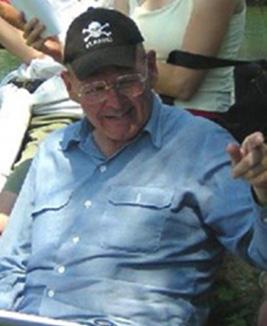
5 minute read
Tourist without a Guidebook
’Goodfellas’
From early February the Royal Academy of Arts will present Jock McFadyen RA: Tourist without a Guidebook, an exhibition that will explore his ongoing interest in the changing urban landscape and will focus on works depicting East London, where he has lived and worked for the past 40 years.
Around 20 of his works will be on display, covering a period from the early 1990s to the present. The exhibition will begin with a pivotal moment in the artist’s development, the decision to reduce the human fgure and to make the location the focus of his work. This leads the viewer towards colour, texture and form, something more akin to abstraction. The display explores the development of this shift but also includes recent works, some of which revisit the human fgure. In 1992, the writer Tom Lubbock described McFadyen’s approach to painting as ‘like a sightseer without a guidebook’, painting not an expected view or subject but an alternative, a view that catches his eye; a description that remains true to his work today. The artist’s large vistas describe the city in a state of transformation as the landscape and the built environment morph into one another.
Despite the absence of the fgure, his paintings are full of human presence and ghosts of human activity. Carefully transcribed graffti, litter, peeling posters and shop signs allude to the city’s inhabitants just out of frame. His depictions of buildings begin to take on human characteristics, broken windows, shuttered doors, painterly scars and a sense of faded grandeur hinting at their past lives and occupants. Jock McFadyen RA said: ‘The guidebook quote comes from when Tom Lubbock wrote the catalogue for my 1992 exhibition Fragments From Berlin at the Imperial War Museum. It struck a chord as he had perfectly described my attitude to painting places, and since that time I have carried the words close to my heart as I wander about the place not looking for anything’.
The artist was born in Paisley in 1950 and as a teenager went to Saturday morning classes at Glasgow School of Art. Aged 15, he moved to England and attended Chelsea School of Art in London from 1973 to 1977. His work from the 1980s is mostly associated with fgurative painting, often featuring marginalised members of society in Chicago, New York, Berlin, Belfast, London and Edinburgh. However, since the 1990s his paintings have largely focused on man-made landscapes such as dilapidated industrial sites, abandoned buildings and deserted streets, as well as pure landscape stripped bare. He has had over 60 solo exhibitions since 1978 and his work is held by over 30 public collections including the Tate, V&A and the British Museum as well as private and corporate collections in Britain and abroad. McFadyen currently lives and works in London and Edinburgh.
Dates and Opening Hours
The Exhibition is in the Weston Rooms, Burlington House from Saturday 6 February – Sunday 11April 2021, Monday – Sunday, 10am – 6pm (last admission 5.30pm)
Tourist without a Guidebook is free. Advance booking is essential for everyone, including Friends of the RA. All visitors must have a pre-booked timed ticket to enter the building. Tickets can be booked in advance online (royalacademy.org.uk) or over the phone (020 7300 8090).
Peritus et Magnanimus Mortuus Est
(A great-hearted expert has died)
Vatican News
The expert Vatican Latinist, Fr Reginald Foster, a friar of the Discalced Carmelite Order, died on Christmas Day at the age of 81. Originally from Milwaukee in Wisconsin, Fr Reginald spent almost 40 years as one of the Vatican’s foremost experts in the Latin language.
Working in the Latin Letters section of the Secretariat of State from 1970 until his retirement in 2009, he served four popes: Paul VI, John Paul I and II, and Benedict XVI – composing original documents in Latin, the Vatican's offcial language, and translating their speeches and other writings into Latin from a series of papal languages. He was also fuent in Italian, German and Greek. In addition to his fulltime work as a Papal Secretary, Foster also served as a priest, tutored students, and had a weekly programme on Vatican Radio, The Latin Lover.
He received global acclaim for his unique pedagogical method and his presentation of Latin as a living language. Starting in 1977, he taught ten Latin courses a year at the Gregorian University in Rome. In 1985, responding to student requests, he added an eight-week summer school with classes meeting seven days a week. The summer school was free; the university fred him in 2004 for allowing too many students to take his classes there without paying. As a result, in November 2006 Foster founded his own free Academia Romae Latinitatis, also known as the Istituto Ganganelli, which as of 2007 was housed at Piazza Venezia in Rome. In 2010, the University of Notre Dame awarded Fr Reginald an honorary Doctorate for his contribution to Latin studies.
Foster grew up in a family of plumbers - his father, brothers, and uncles were all plumbers. He said that he wanted three things from an early age: ‘to be a priest, to be a Carmelite, and to do Latin’. At the age of 15 he went to junior seminary in Peterborough, New Hampshire, and joined the Carmelites in 1959. In 1962, he went to Rome to study. In 1970 he succeeded Mgr Amleto Tondini in the Latin Letters Offce (until Vatican II known as Secretarius Brevium ad Principes or Briefs to Princes), the frst American to be one of the Papal Latin secretaries. He was known for his ascetic lifestyle - sleeping on the foor under a thin blanket, giving away all gifts except books. Instead of wearing clerical garb, which he believed no longer corresponded to the dress of poor people, he wore plain working clothes, sneakers and a blue polyester windbreaker in cold weather. The Swiss Guards called him ‘il benzinaio’ (the petrol pump attendant). There were some complaints about his appearance.
In 2008 Father became ill and was hospitalized for a time. He was fown back to the United States, where he received further treatment in a nursing home in Greenfeld, Wisconsin. As his health improved he resumed giving free Latin classes at the University of Milwaukee and as of March 2017 he was teaching in his Care Home.
Fr John McGowan OCD, of the Carmelite Priory in Kensington, said: ‘Fr Reginald was a legend in the Vatican … He was known not only for his position there, but also for coming to work in what people called a boiler suit. He was the antithesis of what we associate with the Vatican, in the way he dressed and his austere lifestyle. He will be known and missed by countless priests, bishops and cardinals. May he rest in peace.’












